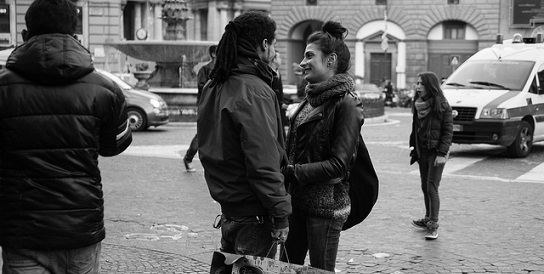We know that positive interactions among people buffer their relationship from potential deterioration in times of conflict. A recent study unpacks just what is meant by “positive”. Feeling good in interactions with your friends and significant others could arise from all kinds of positive emotions: joy, awe, hope, pride. However, unlike the rest, gratitude is an intrinsically relational emotion: we are grateful to someone (benefactor) for something good (kind deed) they did for us. Previous research has shown that expressions of gratitude strengthen our social bonds, but what the active ingredient of this social glue had largely been a mystery. The researchers invited couples and observed their expressions of gratitude to each other. Some were grateful for the banana pudding their partner had made, others for the partners’ support when they had an exceptionally hard day. Surprisingly, the importance of past kindness wasn’t the key to strengthening the relationship, although the more important things made people feel better overall. Across 370 conversations between romantic partners, it was the expressions of gratitude that praised the original benefactor, rather than the utility of the act that would ultimately strengthen the relationship. Even more surprisingly, this was not because praise made the benefactors feel good about themselves, though it did do that too.
Praising the benefactor for their kindness made them see their partner (the recipient of kind acts) as more responsive to their own needs. The more they saw their partner as responsive to their needs, the more they were both satisfied with their relationship. In other words, receiving expressions of gratitude strengthens relationships not because it makes us feel good about ourselves, but because it makes us feel understood, seen and connected in a network of mutual support.
Next time that you find yourself feeling grateful for the kindness of others, it’s a great idea to praise their kindness, rather than focusing on how much their deeds have helped you. So thank you, virtuous reader of conflict resolution blogs, go forth and spread the love.
References:
Gottman, J. M. (1993). The roles of conflict engagement, escalation, and avoidance in marital interaction: a longitudinal view of five types of couples. Journal of Consulting and Clinical Psychology, 61, 6-15. doi:10.1037//0022-006X.61.1.6
Algoe, S. B., Kurtz, L. E. & Hilaire, N. M. (2016) Putting the “You” in “Thank You” Examining Other-Praising Behavior as the Active Relational Ingredient in Expressed Gratitude. Social Psychological and Personality Science, 7, 7, 658-666, doi:10.1177/1948550616651681
 Photo by Mario Mancuso, licensed under a Creative Commons Attribution 4.0 International License.
Photo by Mario Mancuso, licensed under a Creative Commons Attribution 4.0 International License.
